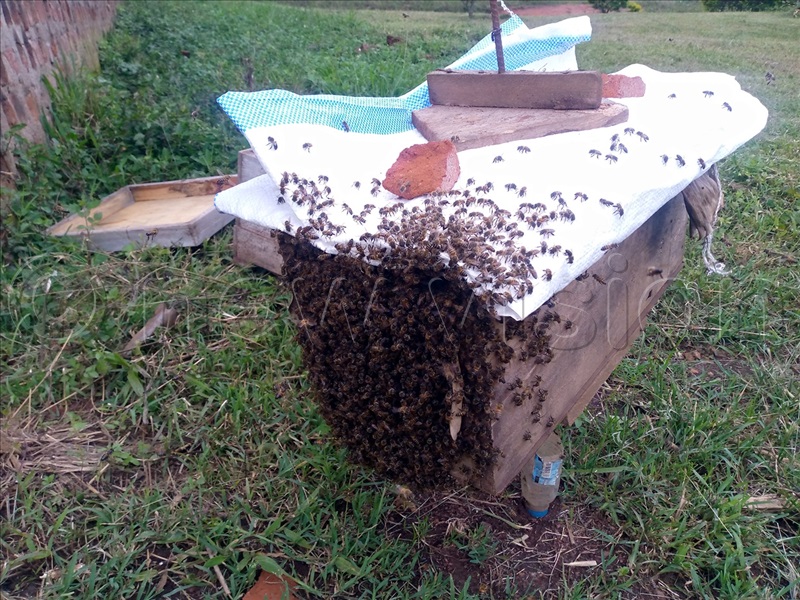By Umar Nsubuga
The urbanisation and human settlement in Ugandan forests where bees used to live are one of the causes of the disappearance of honey bees.
Honey bees perform about 80 percent of all pollination worldwide.

Erieza Nsubuga, a 62-year-old has been a bee farmer for the last 50 years. He says a single bee colony can pollinate 300 million flowers each day.
He adds his biggest worry is that bee populations are on the decline, and this has resulted in a controversy as to why bees are disappearing.
“I feel the pain when developers cut down forests, they destroy the natural habitat of bees and this drives them. Our bees are still natural and they must remain in that state,” he explains.

According to Nsubuga, the systemic nature of the problem makes it complex, but not impenetrable.
He says many farmers and educated Ugandans know that bees are dying from a variety of factors including pesticides, drought, habitat destruction, nutrition deficit and air pollution among others. Many of these causes are interrelated.
Alice Kangave, an entomologist and a beekeeper says humans cannot live without honey bees.
“Many farmers are unaware of the role these insects play as pollinators to crops,” she says.

She says 80% of crops in Uganda depend on bees as their pollinators. But because many of them are smoked away, it is unsurprising that most fruits and food on market are tasteless and unattractive.
Kangave urges farmers to be more friendly, provide water and create a safe space for honey bees because they play a key role in the production of food through pollination.
The United Nations food agency and the European Union this year called for global action to protect pollinators, and bees in particular, which are crucial for ensuring food security.
According to the United Nations, bees help pollinate 90 percent of the world’s major crops, but in recent years many have been dying off from “colony collapse disorder”, a mysterious scourge blamed partly on pesticides.
“We may lose a lot more than honey if bees are unable to cope with the changing climate and increasing demand for agricultural land.”
Nsubuga says there are 25,000 bees worldwide which are responsible for pollinating a third of the food humans eat.
He advises that if we lose bees, then we risk food security and all the other animals that depend on bee-pollinated crops for survival.





